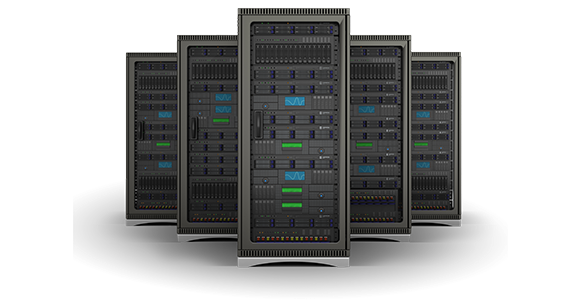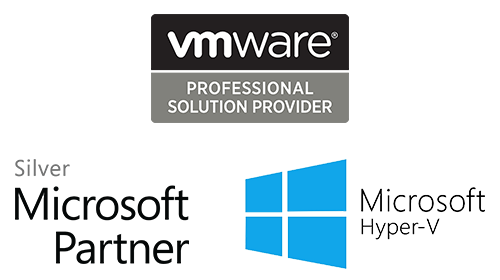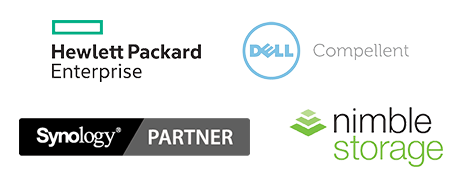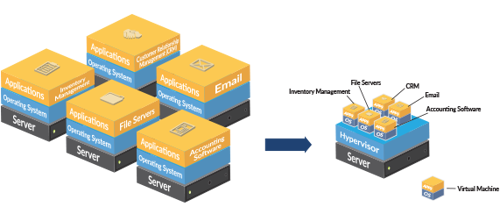
Increase Reliability &
Security Boundary

Cost Savings For Hardware
& Operations

Increase Business
Application Agility

Facilitate Multi-Location Data Redundancy & Recovery
Faster Server Deployment to Minimize Disruptions
Traditionally, the capital expense of purchasing a new server and getting it installed, configured, and data migrated from an old server can cost your business a lot of time and money. By taking advantage of our cost-efficient services, you can rest easy with the knowledge that we'll find you the best deal on a quality piece of hardware. From planning to integration, RDI understands every component of a new server and can help you seamlessly transition during a time when disruptions are minimal for your team. By having a future-proof server migration and management strategy for server infrastructure and data management, your organization can budget effectively, plan for upgrades over time, and replace components before end-of-life to conserve IT resources.

Server Deployment Features & Benefits
- Domain Services
- Redundant Server Power Solutions
- Installation & System Testing
- Customized Price Modeling
- File & Print Services
- Secure Data Migrations
- Managed Security Services
- System Planning for Server Life-Cycle
- Redundant Data Backup Solutions
- Secure Data Archival
- Efficient IT Maintenance & Increased Security
- Server Decommissioning

What Is Server Virtualization?
Server virtualization and Storage Area Networks (SANs) are ideal for medium-sized and enterprise businesses that use 3 or more servers or have servers that are outdated and/or overloaded. Server virtualization tools reduce the need for physical hardware systems by allowing multiple operating systems (OS) to run independently of each other on virtual machines (VMs) in a data center. The resulting increase in resource-utilization lowers the overall server costs.
Virtualization software, called hypervisors, encapsulates the operating system and provides a shim layer between hardware resources. This means resources such as processors, memory, and SSD’s or disks can be shared across multiple virtual machines. Configuring and maintenance of local virtualized servers has traditionally been complex which drives businesses to use public cloud vendors.
True to form, RDI provides fully managed, local virtualization environments to allow your business to scale, take ownership of data, reduce costs, and eliminate support headaches that big vendors cause.
Looking To Transition Your Servers To The Cloud?
Reach Out To Discuss How We Can Save You Money Today!

How Do I Know A SAN Is Right For My Business?
A business that has 2 or more servers and/or lots of virtual machines or applications could be a good candidate to consider adding a Storage Area Network (SAN). When virtualization is paired with a SAN, multiple business locations or multiple virtual servers can share data storage to further reduce costs. SANs facilitate enterprise-class data redundancy for multiple-location businesses and can provide fast SSD storage or slower tiered disk storage depending upon application needs.
For example, databases may require SSD’s but backups may be okay on slower tiered storage. By storing local backups and having data redundancy, SANs create a high-availability environment for businesses and help minimize data recovery time objectives (RTOs). In advanced configurations, RDI can also provide realtime data mirroring between locations for critical geographic redundancy.

Reduce Hardware Complexity
Often, a business may have multiple hosted SaaS (software as a service) or hosted PaaS (platform as a service) applications that don’t work well together. For example, an email server and an accounting software application may not work well together due to security requirements, policies, software configurations, etc. So instead of having two expensive servers to run both applications separately, a business can virtualize their servers to allow both applications to run on virtual machines instead. This reduces hardware complexity and maintenance requirements while yielding recovery, backup, and performance benefits.
Server Virtualization Features & Capabilities

Run Multiple Virtual Machines on the Same Hardware

Patch or Backup Virtual Machines Without Interrupting Service

Centrally Control & Optimize Virtual Machine Environments

Auditable Activity, Performance Log

Layered Security for Hypervisors, Hosts, & Virtual Machines

Capability to Unite Multiple Locations With Centralized VMs

Reduce Costly Energy & Cooling Expenses for Many Physical Servers

Migrate Live Virtual Machines Between Hosts During Scheduled Maintenance

High-Availability, High-Reliability Operations to Ensure Business Continuity

Easily Add Virtual Machines or Adjust Resources to Keep up With Your Evolving Needs

Monitor Server Health, Reduce Performance Bottlenecks, & Easily Rebalance Workloads
Looking To Transition Your Servers To The Cloud?
Reach Out To Discuss How We Can Save You Money Today!
Downloads
Proudly Partnered With:























